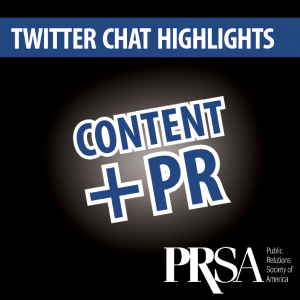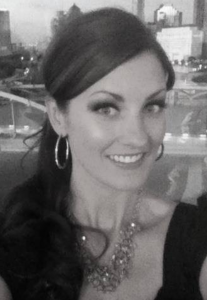 In an age when practically everyone carries the latest model of a mobile device, when breaking news is always a glance away and one company’s misstep can spread like wildfire across the country in a matter of only minutes, it is essential that organizations can effectively communicate their stories, before someone else does for them.
In an age when practically everyone carries the latest model of a mobile device, when breaking news is always a glance away and one company’s misstep can spread like wildfire across the country in a matter of only minutes, it is essential that organizations can effectively communicate their stories, before someone else does for them.
Find Real Stories
The foundation of telling your organization’s story well is to start with finding a story: a real story. Every organization has a story to tell. Even the smallest or seemingly mundane organization has some unique attribute hidden in its history, conception, product, obstacles or successes. As public relations professionals, our job is to unearth these stories and nuances that set organizations apart.
Often best captured by simple anecdotes that reflect organizational values, character and image, your story needs to emulate who you are and what sets you apart. If these stories do not automatically surface, it’s up to you to discover what those differentiations are and effectively communicate them to your audience through authentic communication.
It is important to note, that while a particular instance or fact may seem like an excellent beginning to your brand’s story, even the most interesting tale can stop you in your tracks if it is not consistent with your brand message or values. If you cannot directly link your story to your brand, the message will quickly become diluted and serve as a detriment because of inconsistencies and confusion about who you are and your values. If your story lacks brand consistency or clarity, it’s time to revisit the purpose of finding your story.
The most successful brand stories are not fabricated or over exaggerations of the truth. They are authentic, true and a direct reflection of what the brand values.
Use Real People
Perhaps the simplest way to find a good story that emanates your company’s core character is to find real people who have real stories to tell. Be authentic while creating and refining characters in your story whom your audience will champion. These stories could come from any of your stakeholders, including people from within your organization, one of your clients or even someone in your community. A plethora of compelling content is not necessary in order to communicate your story well. A few unique anecdotes can be more than enough to convey everything about your brand and company culture.
Once you have the story that captures the essence of who you are, what comes next? The mistake many organizations make is convoluting the clarity of their story by hiring an actor or appointing a spokesperson to tell it for them. Consider the purpose of why you originally chose to discover and tell your story; this solution produces the opposite effect.
Did your retired co-founder inherit the shop location of your now nationally recognized bakery chain from a famous pastry artist? Bring her back in for an interview. Make her and what her story means for your organization the focus of your next campaign.
People connect to real stories that evoke authentic emotion. The more willing you are to humanize your stories, the more you can relate to your audience and your audience can relate to you.
Be Authentic
Bottom line: there is trust in transparency.
In this day and age, nothing is hidden. No bad business decision, unethical practice or poor treatment of customers can be concealed. It is only a matter of time before the truth is revealed, and when it is, who would you rather have controlling the conversation: you, the public or even your competition? An honest apology or explanation of the truth can earn the respect of your audience and has the potential to deter ruthless scrutiny, even if that scrutiny is unfounded.
When crafting your story, be as open and honest with your audience as you can be, because openness is equal to trust. Actively disclosing information to your constituents about your company and its products or services is perhaps the most powerful means of establishing and building trust with your audience. Don’t forget to ask yourself the hard questions and answer them before others have the opportunity to answer them for you.
In the end, the key element to telling your organization’s story well is simple: the truth. The most powerful and meaningful brand stories are derived from honesty and openness. When you tell your story by using authenticity and real people to tell those stories, you will establish more than just trust with your stakeholders—you will create passionate brand advocates who believe in your brand and its mission.
 Kristen Syndram is a public relations graduate from Illinois State University and a public relations and communications professional in the central Illinois area. She has gained professional communications experience by working with both Fortune 50 companies as well as boutique agencies and specializes in public relations, media relations and social media. Connect with her on LinkedIn or follow her on Twitter.
Kristen Syndram is a public relations graduate from Illinois State University and a public relations and communications professional in the central Illinois area. She has gained professional communications experience by working with both Fortune 50 companies as well as boutique agencies and specializes in public relations, media relations and social media. Connect with her on LinkedIn or follow her on Twitter.
 Lauren Rosenbaum is the Public Relations Director at BrickPixel, a web design and marketing consultancy. She is the Co-Founder of Soversity, a public relations and digital marketing company. You can connect with her on Google+, LinkedIn or Twitter.
Lauren Rosenbaum is the Public Relations Director at BrickPixel, a web design and marketing consultancy. She is the Co-Founder of Soversity, a public relations and digital marketing company. You can connect with her on Google+, LinkedIn or Twitter.








